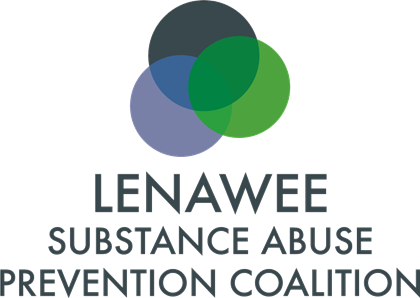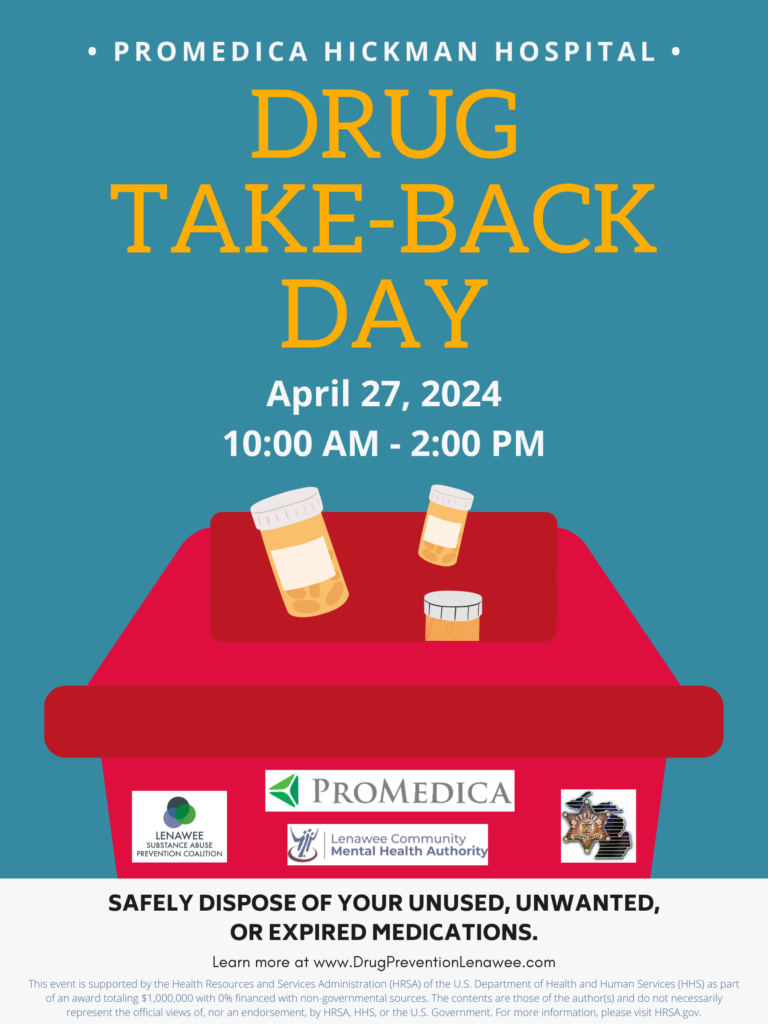How to Talk about Prevention at Any Age
(from the Partnership for Drug-Free Kids)
Conversations are one of the most powerful tools parents can use to connect with — and protect — their kids. But, when tackling some of life’s tougher topics, especially those about drugs and alcohol, just figuring out what to say can be a challenge. We’ve provided scenarios and scripts below on what to say to your child, no matter their age.
Helpful to Note:
- Always keep conversations open and honest.
- Come from a place of love, even when you’re having tough conversations.
- Balance positive reinforcement and negative reinforcement.
- Keep in mind that teachable moments come up all of the time — be mindful of natural places for the conversation to go in order to broach the topic of drugs and alcohol.
What to Say to Your Preschooler About Drugs
(2-4 years old)
Since the foundation for all healthy habits — from nutrition to toothbrushing— is laid down during the preschool years, this is a great time to set the stage for a drug-free life. The following scripts will help you get conversations going with your 2- to 4-year-old child:
| Scenario | What to Say |
|---|---|
| Giving your child a daily vitamin | Vitamins help your body grow. You need to take them every day so that you’ll grow up big and strong like Mommy and Daddy – but you should only take what I give you. Too many vitamins can hurt you and make you sick. |
| Your kids are curious about medicine bottles around the house | You should only take mediciness that have your name on them or that your doctor has chosen just for you. If you take medicine that belongs to somebody else, it could be dangerous and make you sick. |
| Your child sees an adult smoking and, since you’ve talked about the dangers of smoking, is confused | Grown ups can make their own decisions and sometimes those decisions aren’t the best for their bodies. Sometimes, when someone starts smoking, his or her body feels like it has to have cigarettes – even though its not healthy. And that makes it harder for him or her to quit. |
What to Say to Your Early Elementary School Aged Child About Drugs
(5-8 years old)
5- to-8-year-olds are still tied to family and eager to please, but they’re also beginning to explore their individuality. The following scripts will help you get conversations going with your 5- to 8-year-old child:
| Scenario | What to Say |
|---|---|
| Your child has expressed curiosity about the pills she sees you take every day — and the other bottles in the medicine cabinet | Just because it’s in a family’s medicine cabinet doesn’t mean that it is safe for you to take. Even if your friends say it’s okay, say, “No, my parents won’t let me take something that doesn’t have my name on the bottle.” |
| Your child dresses herself for school in a pink zebra print tank top, a polka dot vest, striped leggings and an orange beret. | “You look great. I love how you express your personality in your outfits.” Celebrate your child’s decision-making skills. Whenever possible, let your child choose what to wear. Even if the clothes don’t quite match, you are reinforcing your child’s ability to make decisions for herself. |
What to Say to Your Preteen About Drugs
(9-12 year olds)
Preteens, on their quest to figure out their place in the world, tend to give their friends’ opinions a great deal of power, while at the same time starting to question their parents’ views and messages. The following scripts will help you get conversations going with your 9- to 12-year-old:
| Scenario | What to Say |
|---|---|
| Your child is just starting middle school and you know that eventually, he will be offered drugs and alcohol. | I know we talked about drinking and drugs when you were younger, but now is when they’re probably going to be an issue. I’m guessing you’ll at least hear about kids who are experimenting. I just want you to remember that I’m here for you and the best thing you can do is just talk to me about the stuff you hear or see. Don’t think there’s anything I can’t handle or that you can’t talk about with me, okay?” |
| You find out that kids are selling prescription drugs at your child’s school. Your child hasn’t mentioned it and you want to get the conversation about it started. | Hey, you probably know that parents talk to each other and find things out about what’s going on at school. I heard there are kids selling pills – prescriptions that either they are taking or someone in their family takes. Have you heard about kids doing this?” Let him know that in the future, he can always blame you to get out of a bad situation. Say, “If you’re ever offered drugs at school, tell that person, “My mother would kill me if I took that and then she wouldn’t let me play baseball.” |
| Your child’s favorite celebrity—the one he or she really looks up to—has been named in a drug scandal | Being in the public eye puts a ton of pressure on people, and many turn to drugs because they think drugs will relieve that stress. The thing is, when a person uses drugs and alcohol—especially a young person because he’s still growing—it changes how his brain works and makes him do really stupid things. Most people who use drugs and alcohol need a lot of help to get better. I hope the celebrity has a good doctor and friends and family members to help him/her. |
What to Say to Your Teenager About Drugs
(13-18 year olds)
This is a pivotal time for parents in helping kids make positive choices when faced with drugs and alcohol. Teens are a savvy bunch when it comes to this topic, and they need detailed and reality-driven messages from you. The following scripts will help you get conversations going with your highschool child:
| Scenario | What to Say |
|---|---|
| Your teen is starting high school — and you want to remind him that he doesn’t have to give in to peer pressure to drink or use drugs. | High school is going to be a ton of fun, and we want you to have a great time. But we also know there’s going to be some pressure to start drinking, abusing medicine, smoking pot or taking other drugs. A lot of people feel like this is just what high school kids do. But it’s actually not. Many high schoolers don’t drink or use drugs, which means it won’t make you weird to choose not to drink or use drugs, either.
You can still have a lot of fun if you don’t drink or use drugs. It is important to seek out these other kids who are making good choices, and be brave about trying new activities or making new friends. You’ll have a lot of decisions to make about what you want to do in high school and you might even make some mistakes. Just know that you can talk to us about anything, anytime — even if you DO make a mistake or feel stuck in a situation that you need help to get out of. We won’t freak out. We’ll figure out a way to help you. We want you to count on us to help you make smart decisions and stay safe, okay? |
| Your teen has started to hang out with kids you don’t know — and dropped his old friends. | It seems like you are hanging with a different crowd than you have in the past. Is something going on with your usual friends? Is there a problem with your old friends, or are you just branching out and meeting some new kids? Tell me about your new friends. What are they like? What do they like to do? What do you like about them? |
| Your high schooler comes home smelling of alcohol or cigarette smoke for the first time. | The response should be measured, quiet and serious — not yelling, shouting or overly emotional. Your child should realize that this isn’t just a small frustrating moment like when he doesn’t do a chore you asked for; it’s a very serious moment.
Say, “I’m really upset that you’re smoking/drinking. I need to get a handle on how often this has been happening and what your experiences have been so far. I get that you’re worried about being in trouble, but the worst part of that moment is over — I know that you’re experimenting. I love you and care about you. Your health and well-being are very important to me. Let’s talk about this. I need you to be honest with me. So for starters, tell me about what happened tonight.” |
What to Say to Your Young Adult About Drugs
(19-25 yearolds)
As you prepare your child for life after high school, you can help guide her to a healthy experience — while still supporting her independence. The following scripts will help you get conversations going with your 19-25 year old:
| Scenario | What to Say |
|---|---|
| Your adult child is moving to her own apartment or into a college dorm | I know you’re off to start your own life but please know that I’m always here for you. I respect that you’re old enough to make your own choices, but if you ever want another perspective on things, give a shout. I’ll try my hardest to help you out without judging you for your decisions. Sound good? There are certain things that you can count on in life and one of the things you’re going to be able to count on is me. |
| After watching a movie portraying drug use together, you want to gauge your adult child’s opinion on drugs. | I know you’re going to think that I’m over-protective or meddling, and I’m sorry. But that movie really disturbed me and I’m curious: Is there a lot of drug use at your college/in your new town? Do the new friends that you’ve made dabble in drugs at all? How do you feel about it? |

